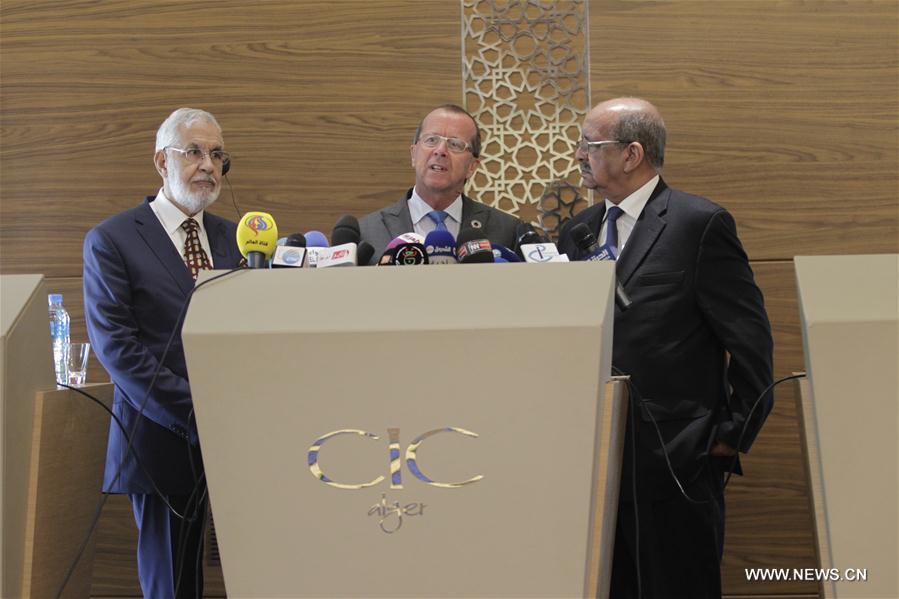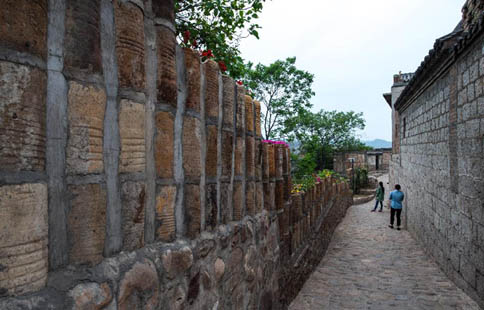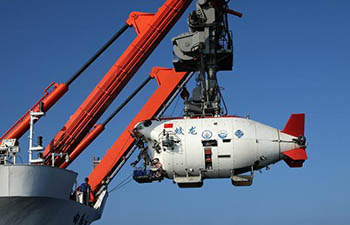
UN Special Envoy to Libya Martin Kobler (C) attends a press briefing with Algerian Minister of Maghreb Affairs, Arab League and African Union, Abdelkader Messahel (R) after the 11th ministerial conference of Libya's neighboring nations in Algiers, Algeria, May 8, 2017. Algerian Minister of Maghreb Affairs, Arab League and African Union, Abdelkader Messahel, on Monday announced that the 12th Libya's neighboring nations' meeting will be held in Libya. (Xinhua)
ALGIERS, May 8 (Xinhua) -- Participants at the 11th ministerial meeting of Libya's neighboring nations held on Monday in the Algerian capital of Algiers reiterated their rejection to any military intervention in this chaos ridden country.
The meeting assessed developments and discussed the peace process in Libya. It gathered the representatives of the six neighboring nations of Libya, including Tunisia, Algeria, Niger, Chad, Sudan and Egypt, in addition to representatives of the United Nations, the African Union, the Arab League and the European Union.
The attendees adopted a statement which included 26 points. They encourage Libyan protagonists to avoid settling their crisis violently, but rather stick on dialogue and political peace process.
Libya's neighbors also called upon lifting freeze on Libyan financial assets in foreign banks, and urged Libyan militias to avoid attacking oil and gas plants. They also reiterated their commitment to support Libyans to head towards national reconciliation, as to pave the way for building strong political, military and security institutions as to safeguard the unity and integrity of Libya.
The attendees rejected once again any foreign military intervention in Libya, as it could have harmful repercussions on the neighboring nations. They also suggested that any foreign counterterrorism operation in Libya should be led in coordination with the government.
Libyan protagonists reached a shaky peace accord following UN-sponsored talks held in the Moroccan resort of Skhirat on Dec. 17, 2015, in an attempt to put an end to more than six years of civil war.
A national unity government and a cabinet were established led by Prime Minister Fayez al-Seraj, whose top mission is to unite Libya's two warring parliaments.
Libya now has two rival parliaments, namely the internationally recognized one, based in the eastern port city of Tobruk, and the General National Congress based in capital city Tripoli supported by General Haftar.















